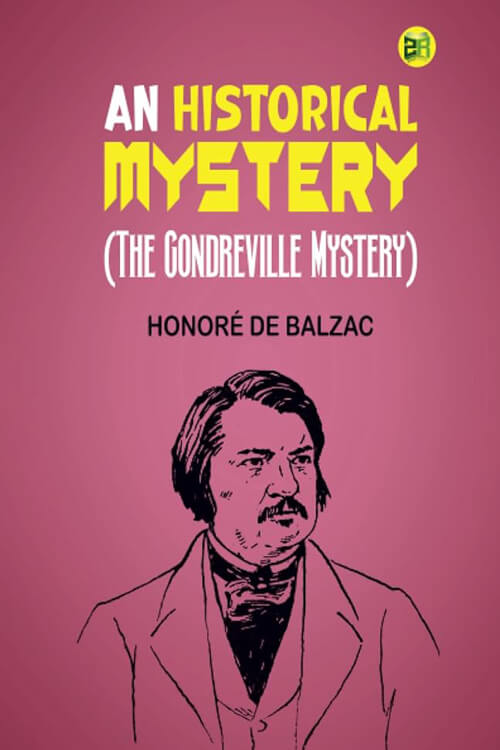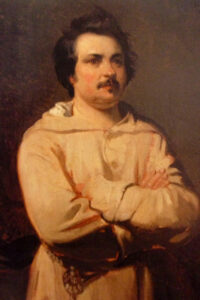
An Historical Mystery The Gondreville Mystery
The autumn of 1803 was one of the finest in the early part of the present century, which we now call “Empire.” Rain had refreshed the earth in October, so the trees were still green and leafy in November. The French people were beginning to put faith in a secret understanding between the skies and Bonaparte, then declared Consul for life—a belief in which that man owes part of his prestige; strange to say, on the day the sun failed him, in 1812, his luck ceased!
About four in the afternoon on the fifteenth of November, 1803, the sun was casting what looked like scarlet dust upon the venerable tops of four rows of elms in a long baronial avenue and sparkling on the sand and grassy places of an immense rond-point, such as we often see in the country where land is cheap enough to be sacrificed to ornament. The air was so pure, the atmosphere so tempered that a family sat out of doors as if it were summer. A man dressed in a hunting jacket of green drilling with green buttons and breeches of the same stuff and wearing shoes with thin soles and gaiters to the knee was cleaning a gun with the minute care a skillful huntsman gives to work in his leisure hours. This man had neither game nor game-bag, nor any of the accoutrements which denote either departure for a hunt or the return from it; and two women sitting near were looking at him as though beset by a terror they could ill-conceal. Anyone observing the scene in this leafy nook would have shuddered as the old mother-in-law and the wife of the man we speak of were now shuddering. A huntsman does not take such minute precautions with his weapon to kill small game, nor does he use a heavy rifled carbine in the department of the Aube.
“Shall you kill a roebuck, Michu?” his handsome young wife asked, trying to assume a laughing air.
Read or download Book
Honoré de Balzac
Honoré de Balzac (20 May 1799 – 18 August 1850) was a French novelist and playwright.
Biography.
The novel sequence La Comédie humaine, which presents a panorama of post-Napoleonic French life, is generally viewed as his magnum opus. Owing to his keen observation of detail and unfiltered representation of society, Balzac is regarded as one of the founders of realism in European literature. He is renowned for his multi-faceted characters; even his lesser characters are complex, morally ambiguous, and fully human. Inanimate objects are also imbued with character; the city of Paris, a backdrop for much of his writing, takes on many human qualities.
His writing influenced famous writers, including the novelists Émile Zola, Charles Dickens, Marcel Proust, Gustave Flaubert, Henry James, and filmmakers François Truffaut and Jacques Rivette. Many of Balzac’s works have been made into films and continue to inspire other writers. James called him “really the father of us all.” An enthusiastic reader and independent thinker as a child, Balzac had trouble adapting to the teaching style of his grammar school. His willful nature caused trouble throughout his life and frustrated his ambitions to succeed in business. When he finished school, Balzac was apprenticed in a law office, but he turned his back on the study of law after wearying of its inhumanity and banal routine. Before and during his career as a writer, he attempted to be a publisher, printer, businessman, critic, and politician; he failed in all these efforts. La Comédie Humaine reflects on his real-life difficulties and includes scenes from his experience.
Balzac suffered from health problems throughout his life, possibly owing to his intense writing schedule. His relationship with his family was often strained by financial and personal drama, and he lost more than one friend over critical reviews. In 1850, Balzac married Ewelina Hańska (née Contessa Rzewuska), a Polish aristocrat and his longtime love. He died in Paris six months later.






